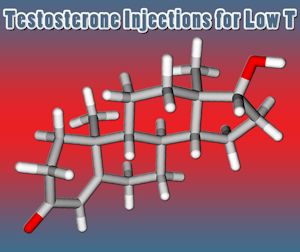Video Link: https://vimeo.com/290633768
Video Download: Click Here To Download Video
Video Stream: Click Here To Stream Video
Intermittent Fasting is one of the most powerfully effective methods of weight loss and has experienced a burst in popularity across America.
While fasts have  long been a feature of some of the world's largest religions, fasting has been recognized for its ability to improve Hormone Balance and encourage weight loss.
long been a feature of some of the world's largest religions, fasting has been recognized for its ability to improve Hormone Balance and encourage weight loss.
There is also evidence that Intermittent fasting can slow down many processes associated with aging, and can also protect the health of the heart. There are various methods of Intermittent Fasting, but 16 and 24-hour fasts are very popular.
How Does Fasting Affect Insulin Levels?
Insulin is how our bodies take energy from blood glucose and deliver it to our muscles, liver, and fat cells. The body produces a surge of insulin after meals and caloric consumption as a mechanism to control blood sugar and glucose where it needs to go.
Because Insulin facilitates the movement of glucose to fat cells, the body cannot extract lipids from these cells while Insulin activity is elevated which can encourage weight gain.
Fasting, exercise, and diet all have a suppressive effect upon Insulin Levels, facilitating weight loss.
How Does Intermittent Fasting Encourage Weight Loss?
Intermittent Fasting is highly effective at encouraging Lipolysis, or the extraction of energy from adipose fat cells. Of course, on the other hand, we also require natural nutrition to maintain good health, even when we're trying to lose weight.
 To maximize weight loss and still get the vitamins, minerals, and nutrients that we require, it's essential to select an Intermittent Fasting Schedule that takes that into account.
To maximize weight loss and still get the vitamins, minerals, and nutrients that we require, it's essential to select an Intermittent Fasting Schedule that takes that into account.
Clinical studies have shown that fasting for 16-24 hours appears to be ideal, depending on whether your goal is maintaining your current weight or to encourage weight loss. Insulin Levels drop to a point that promotes significant Lipolysis at around 16-18 hours of fasting.
If you're merely attempting to shed a few pounds or want to improve hormone balance and maintain your current weight, a 16-hour fasting schedule will likely provide the results that you're looking for.
Also, if you engage in an active exercise schedule, you'll want to go with a shorter fast. Many people opt for a 16-hour fast in which they skip breakfast and hold off until lunch for their first meal of the day. This leaves lots of time for exercise and keeps the body running smoothly.
Don't be afraid to push your 16-hour fast for a couple of extra hours if you can handle it.
On the other hand, if you're interested in losing weight more quickly, a 24-hour Intermittent Fasting Program can provide results without putting excessive strain on your health. Unlike 16-hour fasts, which can be done daily, 24-hour fasts are every other day or a few times per week.
Fasting Encourages Cellular Rejuvenation and Recycling
Fasting encourages optimized natural Human Growth Hormone Production. HGH is a tool that the body uses to both pull fat from cells and facilitate  autophagy.
autophagy.
Autophagy is the recycling process that breaks down and removes underperforming organelles within the cell and stimulates the cell to build replacement organelles more rapidly.
When we eat too much and too often, this process slows down dramatically. When engaging in Intermittent Fasting, this process speeds up significantly as Insulin Levels in the blood fall.
One of the significant problems, when we get older, is that the body repairs and rebuilds slower than it did when it was younger.
Metabolism burns fast when we are young and slows down over time. Encouraging increased cellular metabolism via strategies such as Intermittent Fasting help the human body sustain higher levels of cellular renewal to the benefit of the body as a whole.
How Do Diet and Exercise Affect Cellular Metabolism?
While Fasting has a powerful effect upon body fat breakdown, exercise and physical activity also produce positive results, and you should figure out a system that incorporates proper diet, rigorous training, and strategic fasting that works for you.
Exercise makes the body respond to Insulin more readily, and it also encourages Insulin levels to modulate more quickly, meaning that you'll get enhanced results from fasting.
Concerning diet, eating too many carbs (compared to your activity level) causes  insulin levels to spike and can lead to Insulin Sensitivity over time.
insulin levels to spike and can lead to Insulin Sensitivity over time.
If you're conscientious about your carbohydrates, this will also encourage healthier Insulin Balance and promote fat loss more rapidly when fasting.
It's well documented that Obesity and Diabetes are both highly detrimental to health, but research is still ongoing to determine all of the specific biological reasons why this is the case.
It's believed that impaired cellular autophagy is one of the many reasons why these conditions have such dangerous effects on health, wellness, and longevity.
Interested In Intermittent Fasting?
To date, the evidence is clear that Intermittent Fasting is highly beneficial to long-term health and longevity, as are other factors such as healthy eating and an active lifestyle.
The key is to develop a lifestyle that combines these factors in a  healthy way which facilitates your wellness and quality of life.
healthy way which facilitates your wellness and quality of life.
As we've mentioned, Hormone Balance is an incredibly important aspect of maintaining vitality and good health. Our Board Certified American Hormone Clinic can help you determine if Hormone Imbalance is harming your health.
We provide our services to patients 30 and older!
Reference
Impact of intermittent fasting on health and disease processes
Contact Us Today For A Free Consultation

- Weight Loss Cure - Metabolic Cookbook - Video [Last Updated On: January 25th, 2024] [Originally Added On: July 12th, 2013]
- Qualigen Receives FDA Clearance for Its FastPack® Vitamin D Immunoassay [Last Updated On: January 25th, 2024] [Originally Added On: July 16th, 2013]
- How Julia Montes lost weight [Last Updated On: January 25th, 2024] [Originally Added On: October 4th, 2013]
- Home - Dr. Jenyons Medical Weight Loss and Rejuvenation Center [Last Updated On: January 25th, 2024] [Originally Added On: December 8th, 2013]
- Dieters Beware: Weight Loss Products May Use Deceptive Marketing [Last Updated On: January 25th, 2024] [Originally Added On: January 8th, 2014]
- FTC Announces $34 Million in Settlements with Companies Over Bogus Weight-Loss Products [Last Updated On: January 25th, 2024] [Originally Added On: January 9th, 2014]
- The Point of P3 : #3 Food Sensitivities Discovered to Help Weight Maintenance - Video [Last Updated On: January 25th, 2024] [Originally Added On: May 19th, 2014]
- The Weight Loss Black List; Twelve Dangerous Weight Loss Ingredients [Last Updated On: January 25th, 2024] [Originally Added On: May 31st, 2014]
- Getting a degree in dieting [Last Updated On: January 25th, 2024] [Originally Added On: June 10th, 2014]
- Eat your way to a hot body [Last Updated On: January 25th, 2024] [Originally Added On: June 21st, 2014]
- 7 Fad Diets You Shouldn't Try [Last Updated On: January 25th, 2024] [Originally Added On: July 19th, 2014]
- Try the cookie diet? [Last Updated On: January 25th, 2024] [Originally Added On: July 25th, 2014]
- 14 Fad Diets You Shouldnt Try [Last Updated On: January 25th, 2024] [Originally Added On: July 26th, 2014]
- B12 Injection Therapy as Part of Hormone Replacement Therapy - Video [Last Updated On: January 25th, 2024] [Originally Added On: August 12th, 2014]
- FTC continues cracking down on weight loss scams [Last Updated On: January 25th, 2024] [Originally Added On: December 13th, 2014]
- Micronutrients: The Gateway to Cellular Health Function 101 [Last Updated On: March 1st, 2024] [Originally Added On: June 24th, 2020]
- Could a Revolutionary Weight Loss Strategy Be on the Horizon? [Last Updated On: February 24th, 2024] [Originally Added On: August 19th, 2020]
- Controlling Testosterone Levels Through Diet [Last Updated On: February 12th, 2024] [Originally Added On: October 12th, 2020]
- Limiting the Influence of Estrogen on Male Hormone Balance Through Diet [Last Updated On: January 25th, 2024] [Originally Added On: December 31st, 2020]
- Vitamin D and Sunlight for Mood and Hormone Balance [Last Updated On: January 25th, 2024] [Originally Added On: February 22nd, 2021]
- Testosterone-Boosting Foods: Nutrition for a Man [Last Updated On: September 18th, 2024] [Originally Added On: March 24th, 2021]
- Boost Your Testosterone With a Low-Calorie, Ketogenic-Focused Diet [Last Updated On: August 30th, 2024] [Originally Added On: June 1st, 2021]
- The Standard American Diet is Linked to Poor Testicular Function [Last Updated On: August 23rd, 2024] [Originally Added On: June 8th, 2021]
- Drinking Water Alone Isn’t Enough [Last Updated On: August 26th, 2024] [Originally Added On: March 22nd, 2022]
- A High-Protein Diet – Good for Testosterone Levels or Not? [Last Updated On: September 3rd, 2024] [Originally Added On: March 29th, 2022]
- Inflammatory Foods Linked to Low Testosterone [Last Updated On: September 5th, 2024] [Originally Added On: July 18th, 2022]
- Vitamins and Nutrients that Keep Hair Healthy and Vibrant [Last Updated On: August 11th, 2024] [Originally Added On: November 23rd, 2022]
- Are You a “Soy Boy”? [Last Updated On: December 3rd, 2023] [Originally Added On: February 10th, 2023]
- Finding the Origin of Prostate Cancer to Stop Cancer Before it Starts [Last Updated On: October 25th, 2024] [Originally Added On: February 13th, 2023]
- How to burn calories while walking. [Last Updated On: February 20th, 2024] [Originally Added On: June 27th, 2023]
Word Count: 902





















